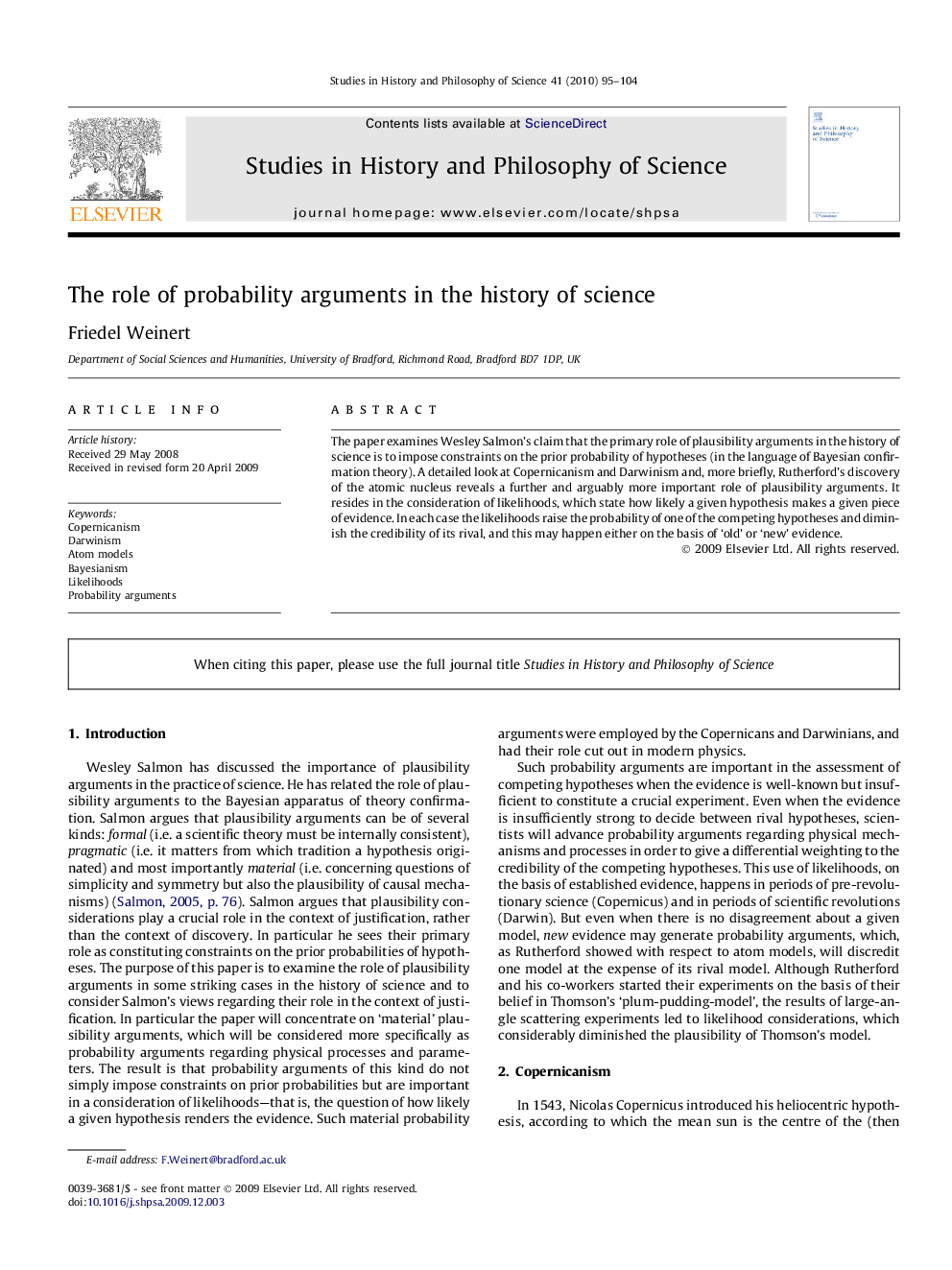| Article ID | Journal | Published Year | Pages | File Type |
|---|---|---|---|---|
| 1160646 | Studies in History and Philosophy of Science Part A | 2010 | 10 Pages |
Abstract
The paper examines Wesley Salmon’s claim that the primary role of plausibility arguments in the history of science is to impose constraints on the prior probability of hypotheses (in the language of Bayesian confirmation theory). A detailed look at Copernicanism and Darwinism and, more briefly, Rutherford’s discovery of the atomic nucleus reveals a further and arguably more important role of plausibility arguments. It resides in the consideration of likelihoods, which state how likely a given hypothesis makes a given piece of evidence. In each case the likelihoods raise the probability of one of the competing hypotheses and diminish the credibility of its rival, and this may happen either on the basis of ‘old’ or ‘new’ evidence.
Keywords
Related Topics
Social Sciences and Humanities
Arts and Humanities
History
Authors
Friedel Weinert,
